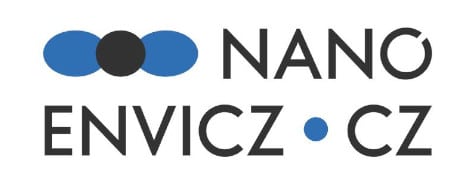Číst zprávu
Číst zprávu
Číst zprávu
Číst zprávu
38th NARECOM
3. 9. 2024
The presentation "Application of LC/MS system in the analysis of organic compounds" will be introduced by Dr. Stanislava [...]
Číst zprávu
Laboratoř ALMA ve studiu 6 ČT: David Hradil hovoří o materiálovém výzkumu umění a identifikaci padělků
9. 7. 2024
Velmi vzácný obraz Ecce Homo italského malíře Michaela Carravaggia málem unikl pozornosti, neboť se předpokládalo, že se jedná o obraz [...]
Číst zprávu
37th NARECOM
13. 6. 2024
The presentation "Chemical solution deposition route to highly oriented hexaferrite thin films" will be introduced by Ing. Josef [...]
Číst zprávu
Science Café
13. 6. 2024
We warmly invite you to the IIC Science Café seminar, which will be held on June 19, 2024 at 2 pm at the IIC of the CAS in Řež. The [...]
Číst zprávu
[ socsitex ]
https://www.youtube.com/watch?v=164oRQ3mbVQ&
https://www.youtube.com/watch?v=164oRQ3mbVQ&
https://www.youtube.com/watch?v=8aovaBIoTco
https://www.youtube.com/watch?v=8aovaBIoTco
https://www.youtube.com/watch?v=BaUH4OIaizE
https://www.youtube.com/watch?v=BaUH4OIaizE
https://www.youtube.com/watch?v=ljESsCwzifI&
https://www.youtube.com/watch?v=ljESsCwzifI&
Novinky ve výzkumu
Catalytic dehalogenation with activated borane, a porous borane cluster polymer
Activated borane (ActB) is a metal- and halogen-free porous borane cluster polymer that effectively serves as a heterogeneous catalyst for hydrodehalogenation of aliphatic fluorides and chlorides, using triethylsilane as a reductant. It demonstrates high thermal stability, reusability, and significant Lewis acidity, making it capable of achieving full dehalogenation with high turnover numbers, even after multiple […]
A Direct Route to closo-SBnCln Thiaboranes: Chalcogen Bonding in SB5Cl5 vs. SB11Cl11 Crystals
Polyhedral boron chemistry exhibits various heteroatom substitution and a series of heteroboranes thus being afforded Furthermore, the introduction of halogens instead of terminal hydrogens enables the synthesis of small perhalogenated heteroboranes, stabilized through π back-donation. In this research, SB5Cl5 and SB9Cl9 clusters were prepared by co-pyrolysis of B2Cl4 with S2Cl2 at 280 °C in a […]
Zr-based MOFs: relation between linkers connectivity, stability, and catalytic activity
Metal–organic frameworks (MOFs) are widely researched but applied only in few commercial processes among others due to unknown stability. This study evaluates the stability of four zirconium-based MOFs with different linkers in water at pH 3.0 to 11.0. Results indicate that MOFs with tetratopic linkers (PCN-222, MIP-200) are more stable than those with ditopic or […]







